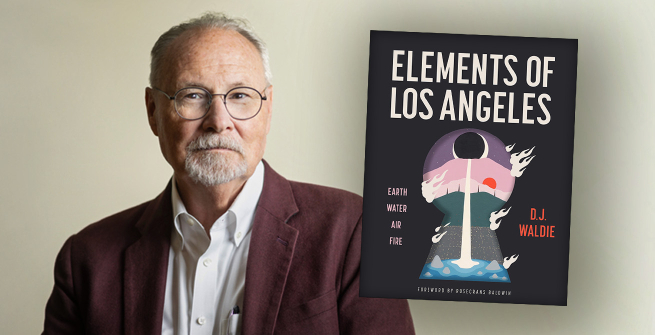D.J. Waldie is a historian of Los Angeles, a memoirist, and a translator. He is the author of Holy Land: A Suburban Memoir (1995),...
LAPL Blog
Latest Posts
Pages
¿Qué vamos a comer hoy?
Si esta es una de las preguntas que te estás haciendo hoy, es genial, porque eso significa que tú eres una de las maravillosas personas encargadas de preparar esos deliciosos platillos en casa.
Read It First! Movie Adaptations in Theaters This Month
If you've heard it once, you've heard it a million times—the book was better! There's nothing like debating the differences between a favorite book and its translation to the screen.
Interview With an Author: Dahlia Adler
Dahlia Adler is an editor of mathematics by day, a book blogger by night, and an author at every spare moment in between.
HistoryMakers Digital Archive
Browse the HistoryMakers digital archive for interviews with fascinating individuals who have made significant contributions to life in the United States.
Video: The Green Book and the Roots of Black Travel in America
Los Angeles Public Library has the second largest collection of Green Books, and we were honored to speak to Candacy Taylor, author of Overgrou
Lo nuevo en español: libros interesantes que llegan a la biblioteca este mes para todas las edades
Los libros en español más esperados están disponibles en tu biblioteca. Haz clic en cada título para verlo en nuestro catálogo. ¡No esperes y reserva tu copia hoy mismo!
Interview With an Author: James Ramos
James Ramos (he/they) is a nonbinary, unapologetically dorky Minnesota native who now calls Arizona home.
Interview With Menopause Expert Dr. Suzanne Gilberg-Lenz
Dr. Suzanne Gilberg-Lenz is a nationally renowned doctor, expert, speaker, and advocate for integrative women's health. And she's on a mission! She's exploring what it means to be a healthy woman in this culture and age and to support our growth as individuals and how we show up in our communities. Dr.
Happy Birthday Oprah Winfrey!
Oprah Winfrey was born on January 29, 1954, in Kosciusko, Mississippi.
Salud, dinero y amor
Es el comienzo de un nuevo año, y con él, la oportunidad de empezar nuevas metas. Te recomendamos que el enfoque de esas metas sean la salud, dinero y amor para asegurar una vida más placentera.










